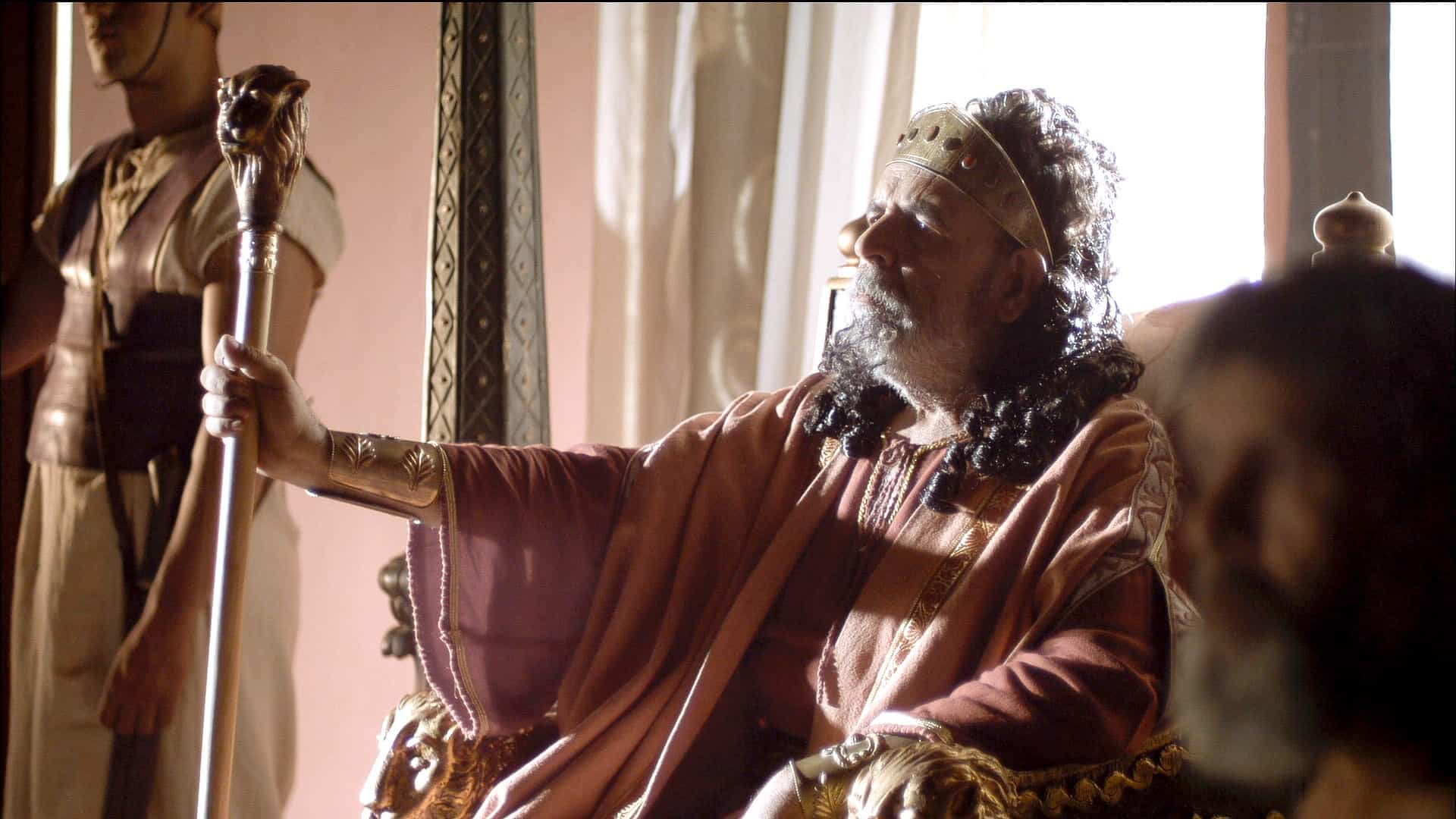After Jesus “was born in Bethlehem of Judea in the days of King Herod, wise men from the east arrived unexpectedly in Jerusalem, saying, ‘Where is He who has been born King of the Jews? For we saw His star in the east and have come to worship Him” (Matt. 2:1-2). Then Matthew added, “When King Herod heard this, he was deeply disturbed, and all Jerusalem with him” (v. 3). Who was King Herod, and why where he and Jerusalem upset?
Herod was the name of several different rulers in Palestine. This particular Herod is known as Herod the Great (74?-4 B.C.). He was a member of an Idumaean family. Idumaea was the Greek name for Edom and the name of a region in the ancient world located south of the Dead Sea and the Gulf of Aqaba. The area was originally inhabited by descendants of Esau. Jews considered the Idumaeans to be a mixed race; they called them “half Jews.”
Herod married ten times. His second, fifth, sixth, and seventh wives—Mariamne the Hasmonaean, Mariamne the daughter of Simon the High Priest, Malthace, and Cleopatra respectively—gave birth to most of his more-than-a-dozen children. A ruthless, cruel tyrant, Herod had his second wife killed when he descended into a jealous rage. Her family paid dearly as well.
In 47 B.C. at the age of 25, Herod became tetrarch of Galilee by appointment. Seven years later, when the Parthians invaded Palestine, civil war erupted, and Herod sought refuge in Rome. This man was a weasel, however—a sly opportunist who with a lust for power who sought to court the favor of anyone sitting in the seat of Roman authority. And he apparently was largely successful in such “public relations” campaigns. The Roman senate nominated him king of Judea, and he was given a military force to establish and solidify his power. After Herod conquered Jerusalem in 37 B.C., Augustus broadened his territory, giving him authority over all of Palestine. He ruled as king of Judea from 37-4 B.C.
Although Idumaean, Herod sought to portray himself as Jewish for practical and political purposes. He oversaw a great deal of construction during his reign, building, among other things, a theatre outside Jerusalem. He also constructed a lavish palace for himself. Herod honored Augustus by moderating athletic contests every five years in the emperor’s honor. This was offensive to many Jews who regarded the games as worldly. Moreover, they believed the images of the emperor in the arena Herod built, along with all the other trophies displayed there, defied God’s command against images and idols. Perhaps to win greater support (although Herod had a keen ability to wield authority over people who hated him), the king oversaw rebuilding and expansion projects for the temple in Jerusalem.
Again, Herod loved power, and he sought to eliminate anyone he saw as a threat. Apparently his insecurities and his temper intensified as he grew older. In 8 B.C. he even killed two of his own children because he thought they posed a threat to his rule. So, when the wise men—men of influence, wealth, and prestige—came to Jerusalem asking where they might find the One “born King of the Jews” so they might “worship him” (Matt. 2:2), Herod was “deeply disturbed” (v. 3). Knowing Herod as they did, all of Jerusalem was disturbed as well. The people’s fears were indeed warranted (see vv. 16-18). Herod died soon after these events occurred.
Copyright © 2015 B. Nathaniel Sullivan. All rights reserved.
photo credit: www.lumoproject.com
Unless otherwise noted, all Scripture quotations in this article are taken from the Holman Christian Standard Bible®, Copyright © 1999, 2000, 2002, 2003, 2009 by Holman Bible Publishers. Used by permission. Holman Christian Standard Bible®, Holman CSB®, and HCSB® are federally registered trademarks of Holman Bible Publishers.
